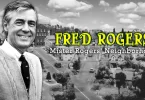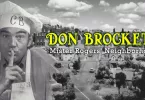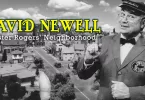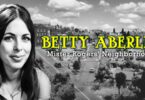Joe Negri is an American jazz guitarist, composer, and educator, best known for his role as Handyman Negri on the children's television program Mister Rogers' Neighborhood. He was born on June 10, 1926, in Pittsburgh, Pennsylvania, to Italian immigrant parents. His father, Michael Negri, was a bricklayer, and his mother, Rose Viggiano, was a homemaker.
Joe’s family was a musical one. His dad played the mandolin, and his mom sang in the church choir. Therefore, it was only natural that his parents encouraged their young son to indulge in the world of music, as well. Joe was given an accordion to play at first but soon changed over to his true musical love, the guitar.
Joe began performing on the radio at age three, where he played the ukelele and sang. Later, he joined the local musicians' union, which allowed him to start playing professionally at engagements. Joe took to music quickly and naturally and toured nationally with the Shep Fields Orchestra in the 1940s. In 1944, he left the Orchestra to join the US Army, which he was in for two years, serving the US and Allies honorably in WWII as a combat infantryman. He was wounded in Germany and was awarded a Purple Heart medal for this.
After coming home from the war, Joe performed in Pittsburgh with his brother, Bobby. Bobby was a pianist, and together, they made an excellent performing duo. Joe also enrolled to study at Carnegie Mellon University, where he concentrated his studies on music composition. Joe spent most of the 1950s playing at local venues in and around Pittsburgh. He frequently worked with Johnny Costa, a local pianist, as well as with accordionist Dom Trimarkie and bassist Lou Mauro. Together, Joe and his trio were the house band on the live local KDKA television variety show Buzz and Bill. This show was hosted by Buzz Aston and Bill Hinds.
In around 1960, the local ABC television outlet, WTAE, hired Joe as their Music Director. Joe played live on a variety of TV shows and composed music for other shows, as well. In fact, Joe spent more than two decades working at this TV station as their music director. It was while working at WTAE that he met fellow Pittsburgh citizen, Fred Rogers. Fred was hosting a children’s show there. The show was short-lived, but the partnership between Joe and Fred was not.
Fred soon went on to create his own children’s television show called Mister Rogers’ Neighborhood. In 1968, Fred asked Joe to join the show. Joe signed on and began appearing on the program as Handyman Negri. Joe played this role for nearly four decades until 2000 when Mister Rogers’ Neighborhood stopped airing new episodes.
Because Joe was a professional musician, many people, when they learned he was on the show, assumed he played a musical role on it. Yet, this was not usually the case. While Joe did occasionally play with the show’s band on special episodes or occasions, he mostly just played Handyman Negri in an actor’s capacity. Once in a while, he played himself as the owner of Negri’s Music Shop on the show when Fred brought on special musical guests.
In addition to his work on Mister Rogers’ Neighborhood, Joe was a teacher for nearly half a century. He taught Jazz Guitar at the University of Pittsburgh, being one of the first teachers of the subject there when it was first offered as a discipline in higher education. He also taught at Duquesne University, where he assisted them in establishing their own Jazz Guitar program of study. One of Joe’s students over the decades was Ralph Pratt, who is today known as the inventor of the major thirds tuning technique. In fact, Joe and Ralph made a recording together in 1989.
Joe recorded an album called Fly Me to the Moon in 2010 with a fellow musician named Michael Feinstein. Joe also performed with Michael in 2011 at the Newport Jazz Festival. In 2010, as well, Joe was the subject of a profile article by Rich Kienzle in Vintage Guitar magazine. The article appeared in the September 2010 issue of the magazine.
Joe’s body of musical work is so large that there is a Joe Negri Archives out there in the world. Joe himself donated the material for the Archives in 1999 to the Center for American Music within the University Library System at the University of Pittsburgh. The Joe Negri Archives had the unique distinction of becoming the one thousandth collection at the University Library System to include an electronically accessible finding aid (a guide that describes the contents of a collection and its creator). The Joe Negri Archives consists of Joe’s substantial collection of manuscripts, memorabilia, original hand-written notes with details about his life, work, and influence, and musical recordings made by Joe. There is even archival television footage of Joe in the Joe Negri Archives.
Other contributions Joe made to the Joe Negri Archives include the compositions he wrote for the River City Brass Band, television scores written by him, commercial jingles he wrote, as well as musical film work he did behind the scenes. Personal and business correspondence are included in the archives, as are musical compositions and scores that companies commissioned from him. Some of the companies whose commissioned work are included in the archives are McDonald’s, Kaufmann’s, Alcoa, and Westinghouse.
Joe was inducted into the Pittsburgh Jazz Society Hall of Fame to recognize his contributions to jazz music in the city of Pittsburgh. He was eighty-seven years old at the time he was inducted into this illustrious group of highly accomplished musicians.
Joe married Joan Barbara Serafini in 1954. They are still together.
Joe Negri's life has been defined by his passion for music, his service to his country, and his dedication to education. He is a beloved figure in Pittsburgh and beyond, and his legacy as a musician and educator will undoubtedly continue to inspire generations to come.




